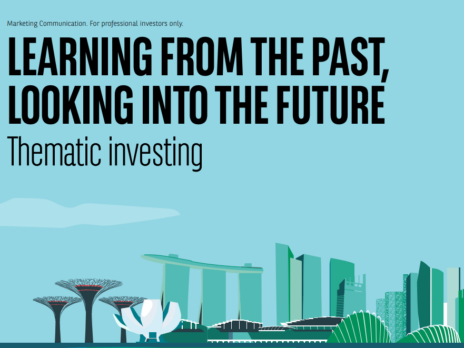
The world faces an uncertain future if the climate targets outlined in the Paris Agreement are not met. The cost would not just be environmental and human, but also economic. Labour and supply chain crises would proliferate as extreme weather events, drought and rising sea levels coincide, leaving large parts of the world uninhabitable. The insurance industry would struggle to cover stressed assets (as we are already seeing in Florida post-Hurricane Ian) as climate events become more frequent. And economies would face low growth and stagflationary pressures.
The global economy is already reeling from stretched labour pools and supply chain issues, many of which have origins linked to the climate crisis. Covid-19 brought about unprecedented fiscal stimulus spending by Western governments, but now the cost of borrowing is on the rise. As central banks try to stem inflation by raising rates, the cost of servicing debt is ballooning. Consumers are battered by wage stagnation and consumer credit is becoming less affordable. China has only just emerged from tough lockdowns that hampered global manufacturing output, further impeding recovery. In addition, Russia’s invasion of Ukraine led to an unprecedented redirection of global energy flows, severing the links between many advanced economies and two of the world’s foremost producers of food and raw materials.
It’s not surprising that the International Monetary Fund has warned of a “rocky recovery”, downgrading its growth forecasts for 2023. It’s no wonder, too, that 2022 saw a rout in stocks, particularly in long-duration, growth-oriented sectors like green power and tech, based on promises of future revenues. “Interest rates going up has caused a lot of trouble in the financial system,” says Edward Lees, co-head of the Environmental Strategies Group at BNP Paribas Asset Management.
[See also: Towards a new, green economy]

We recently saw evidence of this with the unexpected problems in US regional banks. But this bleak outlook also coincides with another story: a wholesale reorganisation of economies around the green transition. “The sector is coming back to life,” Lees adds. “There’s a silver lining. Markets had a tough 2021 and a very tough 2022, so we’re coming from a low base. It’s a really interesting time because fears are moderating, although we’re not quite out of the woods yet, but the macro headwinds are stabilising. Crucially, we’ve got the backdrop of a great policy set-up.”
New policy levers are being employed by the US and the EU, through the Inflation Reduction Act and the Green Deal Industrial Plan, respectively. A range of subsidies and support for industries are being brought into play that should help boost supply chains across a whole number of sectors. Major public investment in green industries and infrastructures is creating significant opportunities for private capital.
“We’ve seen a lot of new policy coming to the fore,” says Lees. “A lot of trends have been dramatically accelerating in response to the Russia-Ukraine war. There’s a strong structural growth opportunity… there’s huge investment in alternative, greener energy supplies like hydrogen, with lots of targets included. You see that a lot of growth is needed, the kind of double-digit compound annual growth rate that you don’t find every day. And that’s exciting from an investment standpoint.”
There’s consensus among public- and private-sector leaders that huge amounts of capital need to be mobilised to support a socially just move away from fossil fuels towards cleaner alternatives. And the growth of thematic investing can be key to driving the transition.
Thematic investing focuses on broad, globally relevant themes and macro-level trends playing out over longer periods of time across geographies and sectors. This could be the development of robotics and automation, or rapid urbanisation in emerging markets. Sustainability is also a core theme, with, for example, renewable energy well-positioned to reap the benefits of the green transition.
With an experienced team of thematic investors, BNP Paribas Asset Management’s Environmental Strategies Group targets assets with the potential for both positive returns and positive environmental outcomes. “It’s about what companies are doing and what they aim to do in the future, not just their policies or what they’ve done in the past,” says Lees.
Thematic investment takes a slightly different approach. “You’re not doing sector-based investing,” Lees says, “you’re investing in a dynamic that cuts across sectors. The environment is a huge thematic which includes big sub-sections like decarbonisation, sustainable food production, clean water and water security, decentralised and digitised energy systems. You’re looking at the whole chain of production, distribution and exchange that will be affected long-term, rather than confining yourself just to, say, wind turbines or electric vehicles – although both of those will of course be a part of it.”
As global macro-economic headwinds continue to bite, this kind of strategic, thematic approach should continue to play a key role in catalysing the green transition – and potentially boosting investment returns, too.
[See also: How Labour’s £28bn green pledge could deliver beyond climate]

